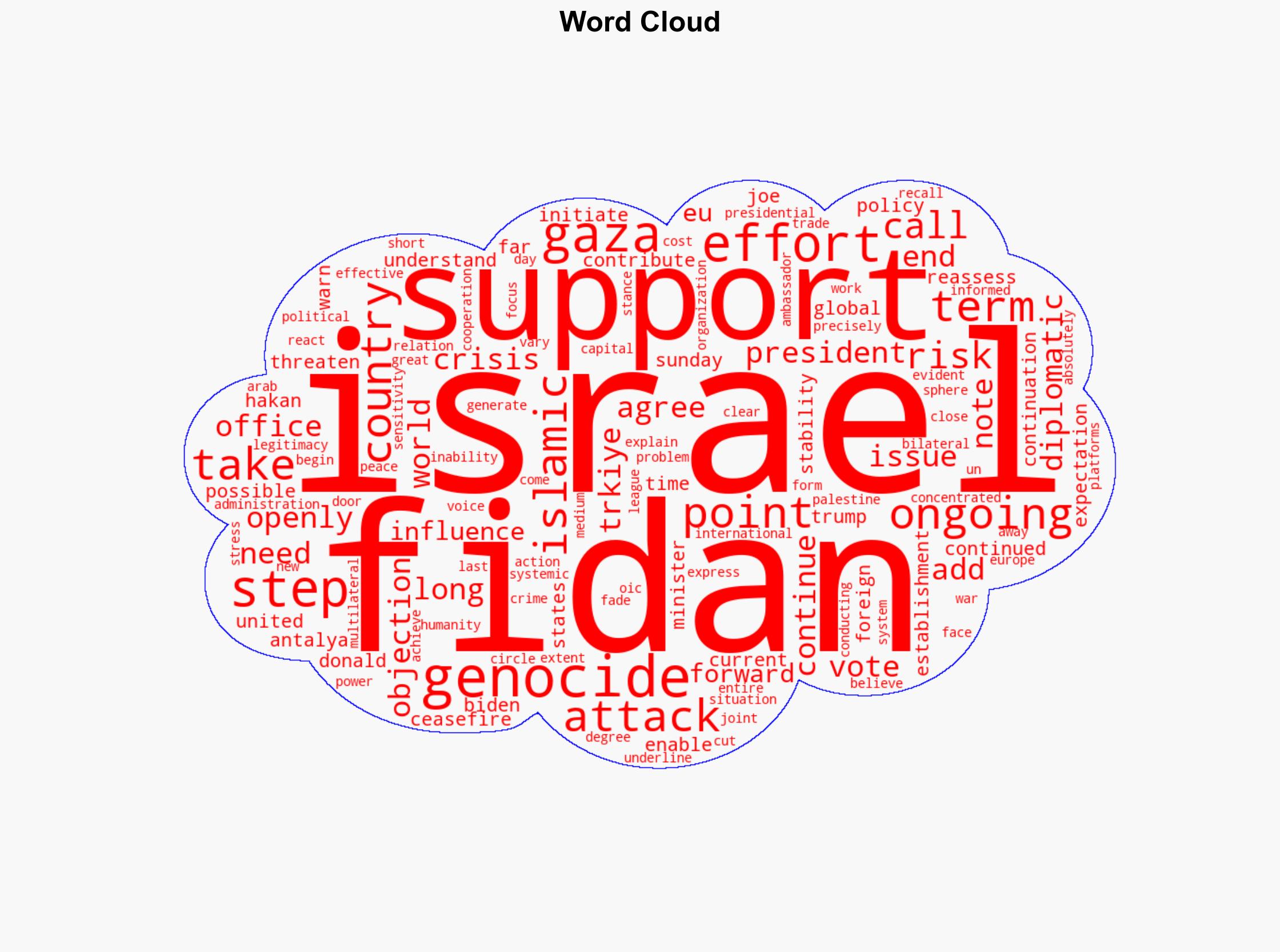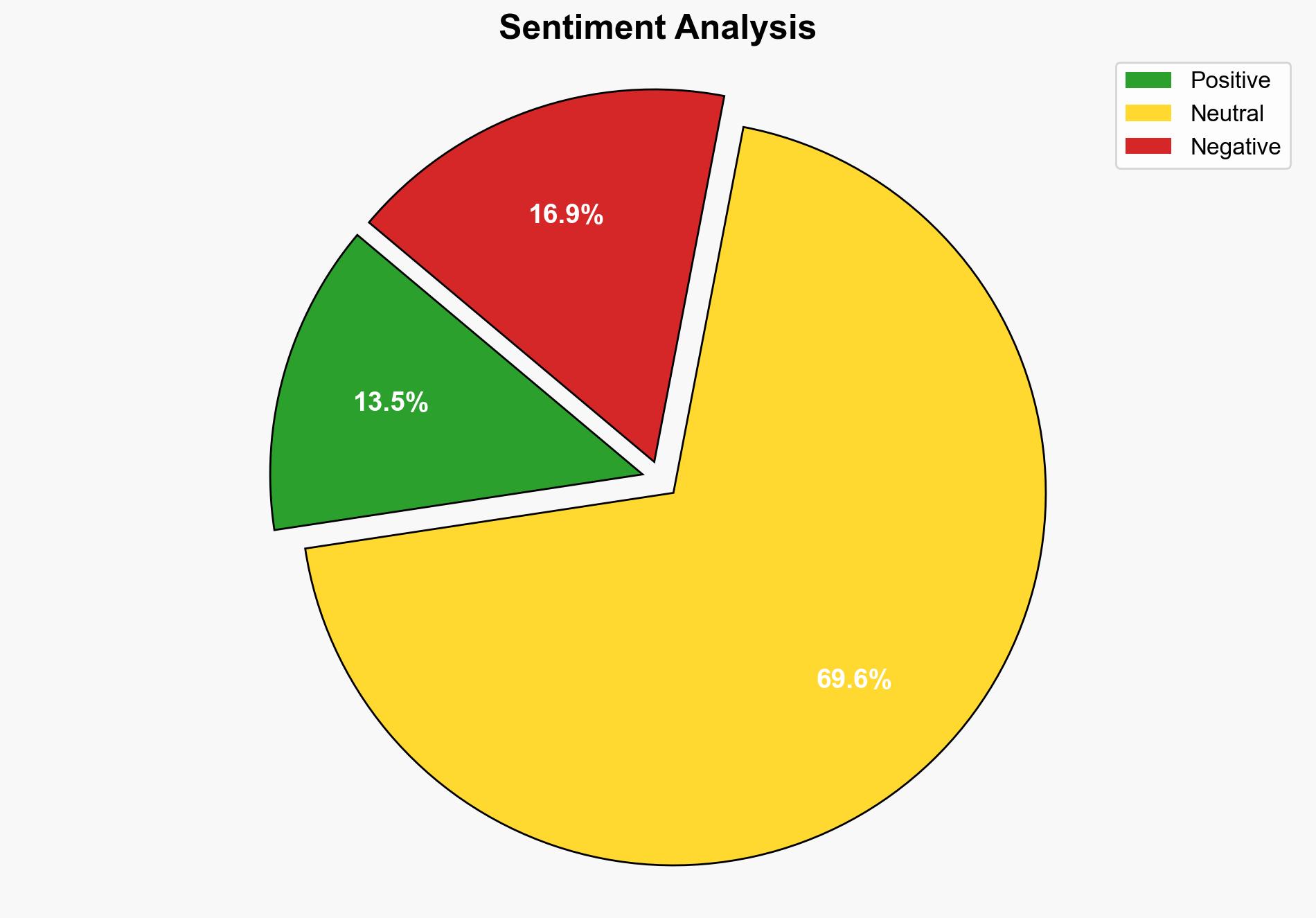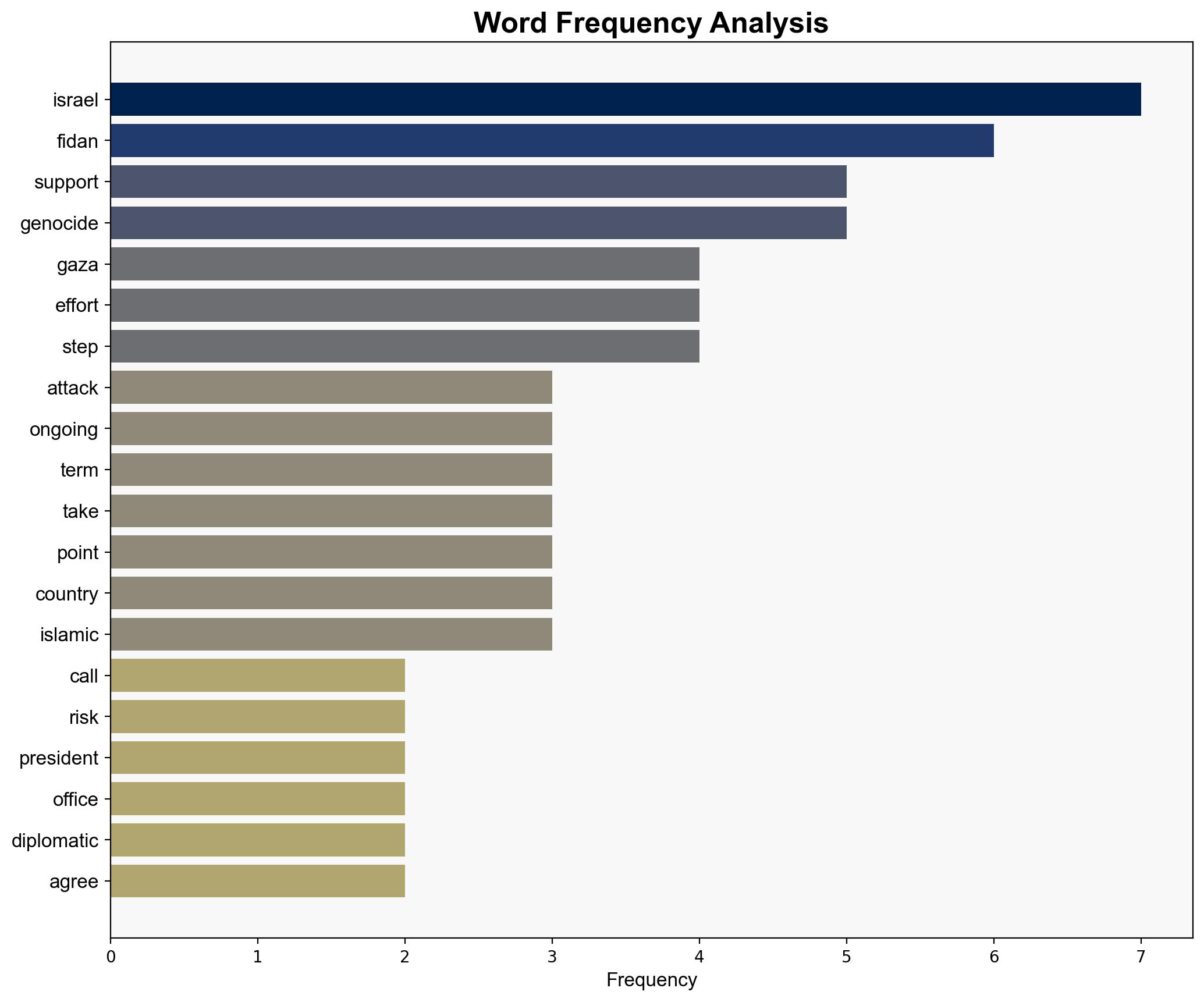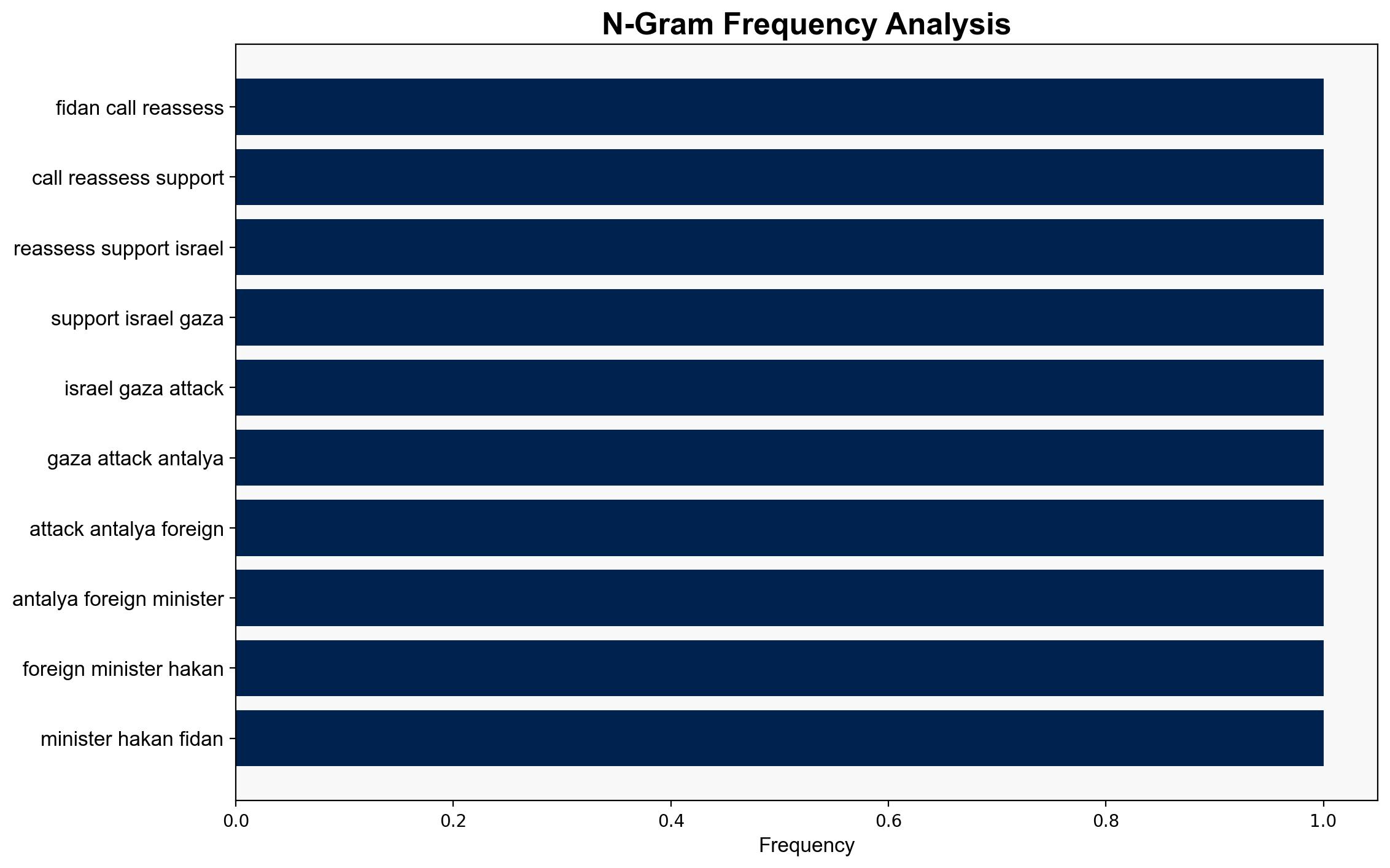Fidan calls on US to reassess support for Israels Gaza attacks – Hurriyet Daily News
Published on: 2025-04-14
Intelligence Report: Fidan calls on US to reassess support for Israels Gaza attacks – Hurriyet Daily News
1. BLUF (Bottom Line Up Front)
Fidan has urged the United States to reconsider its support for Israel’s military actions in Gaza, highlighting the potential for these actions to be perceived as genocide and a threat to global stability. He emphasized the need for the U.S. to be better informed about the risks of continued support and called for diplomatic efforts to focus on influencing U.S. policy. The situation presents a legitimacy crisis and systemic challenges that could have long-term implications for international relations and stability.
2. Detailed Analysis
The following structured analytic techniques have been applied for this analysis:
General Analysis
Fidan’s statements reflect a significant diplomatic push to alter the current geopolitical dynamics surrounding the Israeli-Palestinian conflict. The emphasis on U.S. support as a pivotal factor in the continuation of hostilities suggests a strategic focus on shifting American policy as a means to achieve peace. The mention of a UN vote against Israel by 156 countries underscores a broad international consensus on the issue, yet highlights the challenge of translating this consensus into effective action. The reference to efforts within various international organizations indicates a multi-faceted approach to diplomacy, though the effectiveness of these efforts remains uncertain given the entrenched positions of key stakeholders.
3. Implications and Strategic Risks
The ongoing conflict and the perception of U.S. support for Israeli actions pose several strategic risks, including:
- Increased tensions between the U.S. and countries opposing Israeli actions, potentially affecting diplomatic relations and alliances.
- Heightened instability in the Middle East, with potential spillover effects on regional security and economic interests.
- A legitimacy crisis for international institutions perceived as ineffective in resolving the conflict, undermining global governance frameworks.
- Long-term economic impacts due to disrupted trade relations and increased geopolitical uncertainty.
4. Recommendations and Outlook
Recommendations:
- Engage in targeted diplomatic efforts to influence U.S. policy by highlighting the broader international consensus and potential consequences of continued support for Israeli actions.
- Strengthen multilateral cooperation within international organizations to present a unified stance and increase pressure for a peaceful resolution.
- Explore regulatory and policy changes that could incentivize de-escalation and promote dialogue between conflicting parties.
Outlook:
Best-case scenario: Diplomatic efforts lead to a shift in U.S. policy, resulting in a ceasefire and renewed peace negotiations.
Worst-case scenario: Continued U.S. support exacerbates the conflict, leading to further regional instability and a breakdown in international diplomatic efforts.
Most likely outcome: Incremental diplomatic progress with ongoing tensions, as entrenched positions and geopolitical interests complicate resolution efforts.
5. Key Individuals and Entities
The report mentions significant individuals and organizations, including Fidan, Joe Biden, and Donald Trump. The analysis also references collective actions by Islamic countries, the EU, and the U.S.





